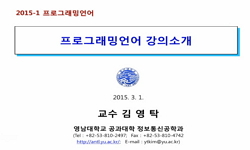In the Internet, user authentication is the most important service in secure communications. Although password-based mechanism is the most widely used method of the user authentication in the network, people are used to choose easy-to-remember passwor...
http://chineseinput.net/에서 pinyin(병음)방식으로 중국어를 변환할 수 있습니다.
변환된 중국어를 복사하여 사용하시면 됩니다.
- 中文 을 입력하시려면 zhongwen을 입력하시고 space를누르시면됩니다.
- 北京 을 입력하시려면 beijing을 입력하시고 space를 누르시면 됩니다.
Stolen-Verifier 공격과 Impersonation 공격에 안전한 개선된 OSPA 프로토콜 = An Improved Optimal Strong-Password Authentication (I-OSPA) Protocol Secure Against Stolen-Verifier Attack and Impersonation Attack
한글로보기https://www.riss.kr/link?id=A101859614
- 저자
- 발행기관
- 학술지명
- 권호사항
-
발행연도
2004
-
작성언어
-
- 주제어
-
KDC
500
-
등재정보
구)KCI등재(통합)
-
자료형태
학술저널
-
수록면
439-446(8쪽)
- 제공처
-
0
상세조회 -
0
다운로드
부가정보
다국어 초록 (Multilingual Abstract)
In the Internet, user authentication is the most important service in secure communications. Although password-based mechanism is the most widely used method of the user authentication in the network, people are used to choose easy-to-remember passwords, and thus suffers from some innate weaknesses. Therefore, using a memorable password is vulnerable to the dictionary attacks. The techniques used to prevent dictionary attacks bring about a heavy computational workload. In this paper, we describe a recent solution, the Optimal Strong-Password Authentication (OSPA) protocol, and that it is vulnerable to the stolen-verifier attack and an impersonation attack. Then, we propose an Improved Optimal Strong-Password Authentication (I-OSPA) protocol, which is secure against stolen-verifier attack and impersonation attack. Also, since the cryptographic operations are computed by the processor in the smart card, the proposed I-OSPA needs relatively low computational workload and communicational workload for user.
동일학술지(권/호) 다른 논문
-
공개 보안 도구를 이용한 리눅스 기반 통합 보안 시스템의 설계 및 구현
- 한국정보처리학회
- 전용희 ( Yong Hee Jeon )
- 2004
- 구)KCI등재(통합)
-
AP 인증 및 동적 키 분배를 이용한 안전한 무선랜 시스템 구현
- 한국정보처리학회
- 이종후 ( Jong Hu Lee )
- 2004
- 구)KCI등재(통합)
-
이동통신 시뮬레이터를 위한 개선된 텔레트래픽 모델과 객체 클래스 설계
- 한국정보처리학회
- 윤영현 ( Young Hyun Yoon )
- 2004
- 구)KCI등재(통합)
-
- 한국정보처리학회
- 성수련 ( Su Lyun Sung )
- 2004
- 구)KCI등재(통합)




 KISS
KISS






